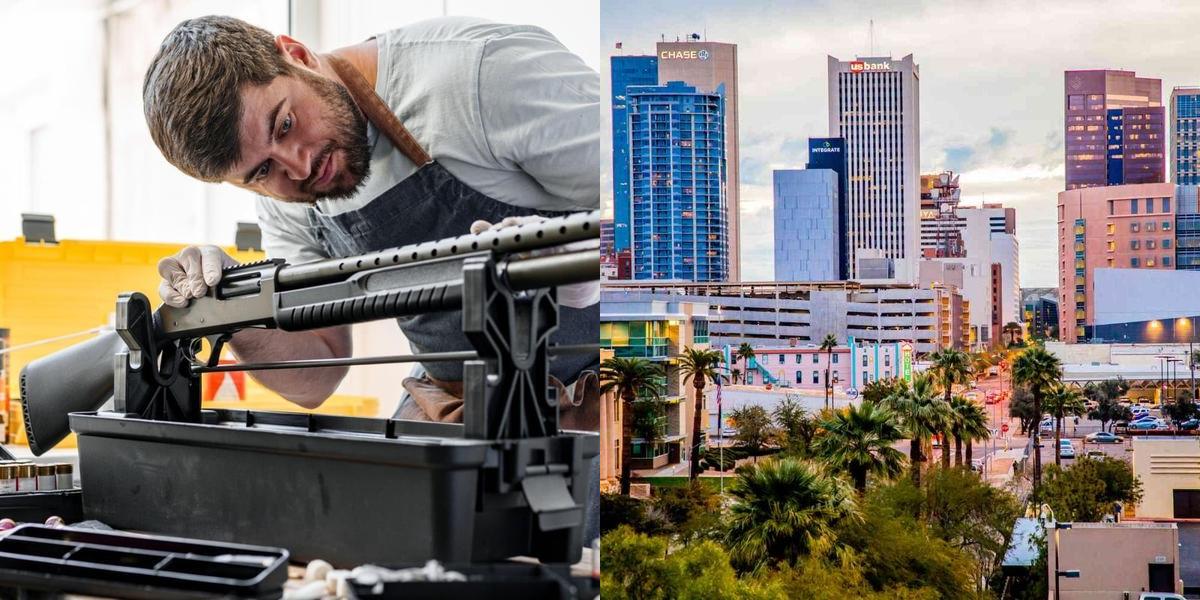How to Become a Gunsmith in Arizona

Gunsmiths in Arizona repair, modify, and maintain firearms for personal, commercial, or law enforcement use. This hands-on career blends metalwork, precision machining, and a deep knowledge of firearm safety. If you're detail-oriented and passionate about firearms, here’s how to become a certified gunsmith in Arizona.
4. Apply for jobs
Use MyNextMove to search for gunsmith job openings near you. Job titles may include:
- Gunsmith Technician
- Firearms Repair Specialist
- Custom Firearm Builder
5. Get your FFL (if needed)
If you plan to sell or manufacture firearms, apply for a Federal Firearms License (FFL) through the ATF.
Where to Find Classes in Arizona
Dreambound helps you search and compare trade schools that offer gunsmith training.
Career Paths and Opportunities
With experience, gunsmiths can advance into roles such as:
- Custom gunsmith – Specializes in high-end custom builds
- Firearm designer – Works with manufacturers to create new products
- Law enforcement armorer – Maintains and repairs police firearms
- Shop owner – Opens a private gunsmithing business
- Firearms instructor – Teaches gun safety or advanced techniques
Frequently Asked Questions
How long does it take to become a gunsmith in Arizona?
3 months to 2 years, depending on the program.
How much does a gunsmith make in Arizona?
Gunsmiths earn $49,040 per year on average (BLS).
What’s the fastest way to become a gunsmith?
Enroll in a certificate or diploma program that lasts 3–6 months.
Do I need a license to be a gunsmith in Arizona?
Only if you're selling or manufacturing firearms — then you need an FFL.
Final Thoughts
Becoming a gunsmith in Arizona is a smart move if you're hands-on and passionate about firearms. With affordable training programs and growing job demand, this skilled trade offers long-term career potential.
👉 Compare Arizona gunsmith programs now on Dreambound and start your training today.
If this article isn't quite hitting the mark for you, why not give these other articles a try:

Vduani Martinez is a part of the Growth team at Dreambound. She creates and fixes workflows and automation to guarantee seamless operations. On top of that, she manages databases to ensure all information is up to date. Vduani is a licensed Electronics Engineer who loves coffee and is a travel enthusiast. Out of the office, she enjoys going on road trips and discovering new cafes and restaurants.



